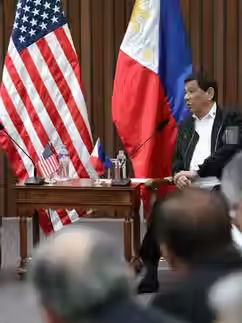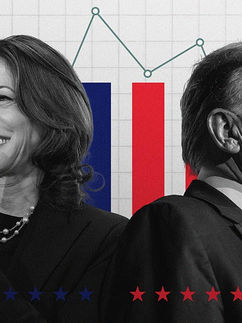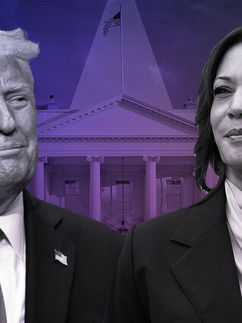A Sahelian Confederacy: The Implications for Sub-Saharan Africa
Joe Alexander

Regime change in Africa, triggered by an ethnic insurgency, led to international military intervention and subsequent military coups in Mali, Guinea, Burkina Faso, Niger, Chad and Gabon. Persistent insurgencies and distrust in civilian leadership fuelled coups in 2020, 2021 and 2023 across three nations. The new military rulers of Niger, Mali and Burkina Faso are planning to form a confederation, envisioning a unified entity aiming to encompass diplomatic, economic and military integration.
The Sahelian Confederacy
The junta-led countries of Niger, Mali and Burkina Faso are moving forward with policy to create a confederation, despite concerns from the Economic Community of West African States (ECOWAS). Niger's, Mali, and Burkina Faso’s foreign ministers have proposed creating a confederation following a meeting in Bamako, Mali. Residing in the impoverished Sahel region, the three states have confirmed their commitment to withdraw from ECOWAS and commit to strengthening ties under the Alliance of Sahel States (AES). The Tri-State Confederation’s political, economic and security interests have not yet been explicitly provided.
Still, there are discussions about a monetary union and the potential abandonment of the Franc of the Financial Community of Africa (CFA franc) common currency. Recommendations for military and economic integration mirror aspects of ECOWAS. Moreover, Niger and Burkina Faso plan to withdraw from the G-5 Sahel Alliance, an initiative which aims to work collectively to combat the presence of jihadist groups in the region, which signals a shift in regional strategies and partnerships. However, this move raises concerns about conflicting regional integration goals and potential departures from ECOWAS frameworks. Security experts view this as a move to legitimise junta rule amid ECOWAS sanctions, rather than addressing violent extremism.
Challenges
Niger, Mali and Burkina Faso’s ambitious initiative seeks to unite their capabilities and assets, promoting collaboration and unity. However, amid these strides toward integration, the area has experienced an increase in turmoil and insecurity due to militant Islamist groups, affecting not just the primary nations involved but also neighbouring coastal states – which are ECOWAS members – such as Ghana, Togo and Benin. The proposed Sahel Confederacy faces hurdles in economic and military integration. Past confederations in Africa, such as the Senegambia Confederation, have often failed due to political, economic, and military complexities.
Military Struggles Amid Islamist Insurgencies
The Sahel Confederacy faces integration problems despite the signing of a common military alliance in 2023. However, as of now, little progress towards interoperability has occurred. This can be attributed to the ongoing jihadist insurgency which is diverting resources. Furthermore, the juntas have cut military relations with France, having consequential impacts in the region, such as efforts against Islamist insurgents. Niger has focused on revoking deals with European governments, including military partnerships and migration-related pacts.
France’s withdrawal in Sahel coupled with the recent coups led to the use of mercenaries from the private military company (PWC), Wagner, to fight the jihadists. Yet previous historical failures of the PMC Wagner in Mozambique illustrate their limited effectiveness in combating insurgencies. Therefore, the need to improve strategy for combating Islamist insurgencies is required, beyond the use of mercenaries. Ultimately, the AES’ military integration, although an easier path compared to economic integration, remains a challenge amid security threats and counterinsurgency struggles.
Economics & ECOWAS
The geographical context of the developments is central to understanding the economics of the Sahelian Confederacy. The Sahel region faces economic challenges owing to its landlocked nature. Being landlocked poses challenges to economic prosperity such as the absence of maritime trade routes to global markets. Furthermore, lacking sufficient infrastructure for trade, the Sahelian states struggle with investment and development initiatives which further hinder growth.
In July 2023, a military coup in Niger prompted ECOWAS to enforce stringent penalties on the nation, including border shutdowns, halts in financial transactions and asset seizures. The shutdown of the border with Niger has notably impacted the northern states of Nigeria, worsening pre-existing economic difficulties and food insecurity. These actions were intended to compel the military junta to reinstate constitutional governance. Nonetheless, the sanctions have resulted in significant adverse effects on civilians, triggering shortages of food supplies, interruptions in power supply and disruptions in the economy.
On 28th January 2024, the three Sahelian states announced the planned exit from the ECOWAS. Exiting the current Customs Union and potentially abandoning the West African CFA Franc pose complex decision-making, considering the dominance of Nigeria in ECOWAS. Leaving the single market of ECOWAS, particularly forfeiting access to Ivory Coast, would significantly harm the economies of the Sahel region. Ivory Coast holds a crucial position within the CFA Franc zone, providing unparalleled advantages such as access to financial markets and crucial ports. Moreover, economic integration within ECOWAS is a gradual process that spans years, emphasising the intricate and long-term nature of initiatives aimed at regional organisation and economic unity.
Future Prospects and Recommendations
The Sahel Confederacy's viability hinges on navigating these complexities, including economic hurdles and geopolitical tensions. Previous encounters with comparable confederations in Africa act as warnings, showcasing the complex interplay of political, economic and social factors that frequently sabotage such initiatives. The collapse of past confederations emphasises the necessity for a holistic and enduring strategy towards integration that tackles these diverse challenges.
Nigeria, being a significant player, should push for targeted sanctions directed at military leaders while minimising adverse effects on civilians. Moreover, diplomatic dialogue and humanitarian aid play vital roles in resolving the crisis and lessening its repercussions on the region's populace and economies.
To date, economic sanctions have shown little effectiveness due to constrained regional trade. Similarly, efforts to intervene militarily in Mali, Niger and Burkina Faso would probably have adverse consequences, potentially leading to a power vacuum exploited by jihadist groups. Consequently, ECOWAS members are compelled to reluctantly engage with the Sahel nations and discourage military coups.
More holistically, within the wider scope of African integration, there are added pressures on regional unity and collaboration. Coups and political turbulence across different countries have diminished trust and belief in regional unions such as the African Union (AU) and the ECOWAS. These entities, designed to promote solidarity and joint efforts, are now dealing with internal rifts and external influences that undermine their ability to effectively tackle regional challenges.
Military dominance over civilian governments, as observed in Egypt and similar cases, often results in short-lived administrations. Following official transitions, military power brokers retain significant sway, delegating civilian matters to elected officials unless boundaries are breached. However, this setup could destabilise the Sahel Confederacy if conflicts arise between civilian and military factions, potentially sparking additional coups. Such instability poses risks to the long-term sustainability of federal structures, prompting concerns about the durability of regional organisations like ECOWAS. Member states must prevent coups in neighbouring nations to uphold regional stability and preserve the unity of the collective union.
Although efforts to mend the division between the ECOWAS and AES are warranted, achieving success appears doubtful. If reconciliation efforts fail, one alternative approach might be to seek agreement with the AES upon a framework for calibrated disengagement from the bloc and, subsequently, peaceful cohabitation. Through this proposed framework, the two blocs should work to mitigate any damage to the region’s security and economy, including the creation of refugees.
Hence, despite obstacles, sustaining discussions and collaboration with Sahel nations remains essential for stability and security across Africa, highlighting the intricate interaction among regional integration, geopolitical shifts, and security issues in the Sahel area.
The effectiveness of ventures such as the Sahel Confederacy depends on African leaders' capacity to adeptly handle these hurdles, utilising their combined capabilities and assets for mutual benefit. This path is laden with challenges but also presents chances to create a more cohesive and promising future for Sub-Saharan Africa.
Joe Alexander is a First Class Bachelor Arts in International Relations graduate from the University of Leeds, UK. His acute interests are within the fields of geopolitical advisory, international diplomacy, Responsibility to Protect, conflict management, and security studies.

















Comentários